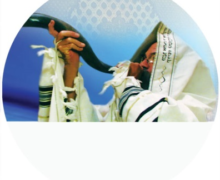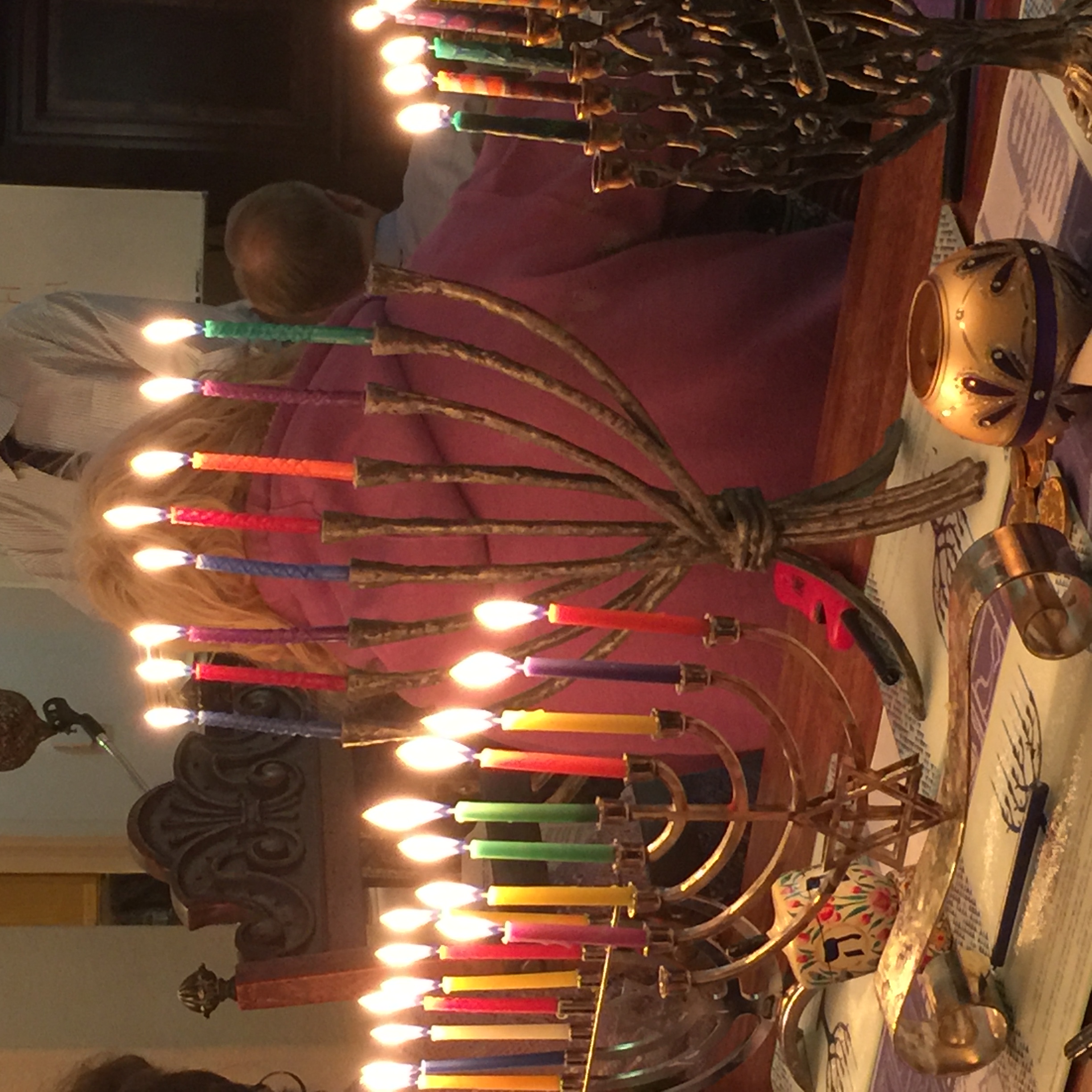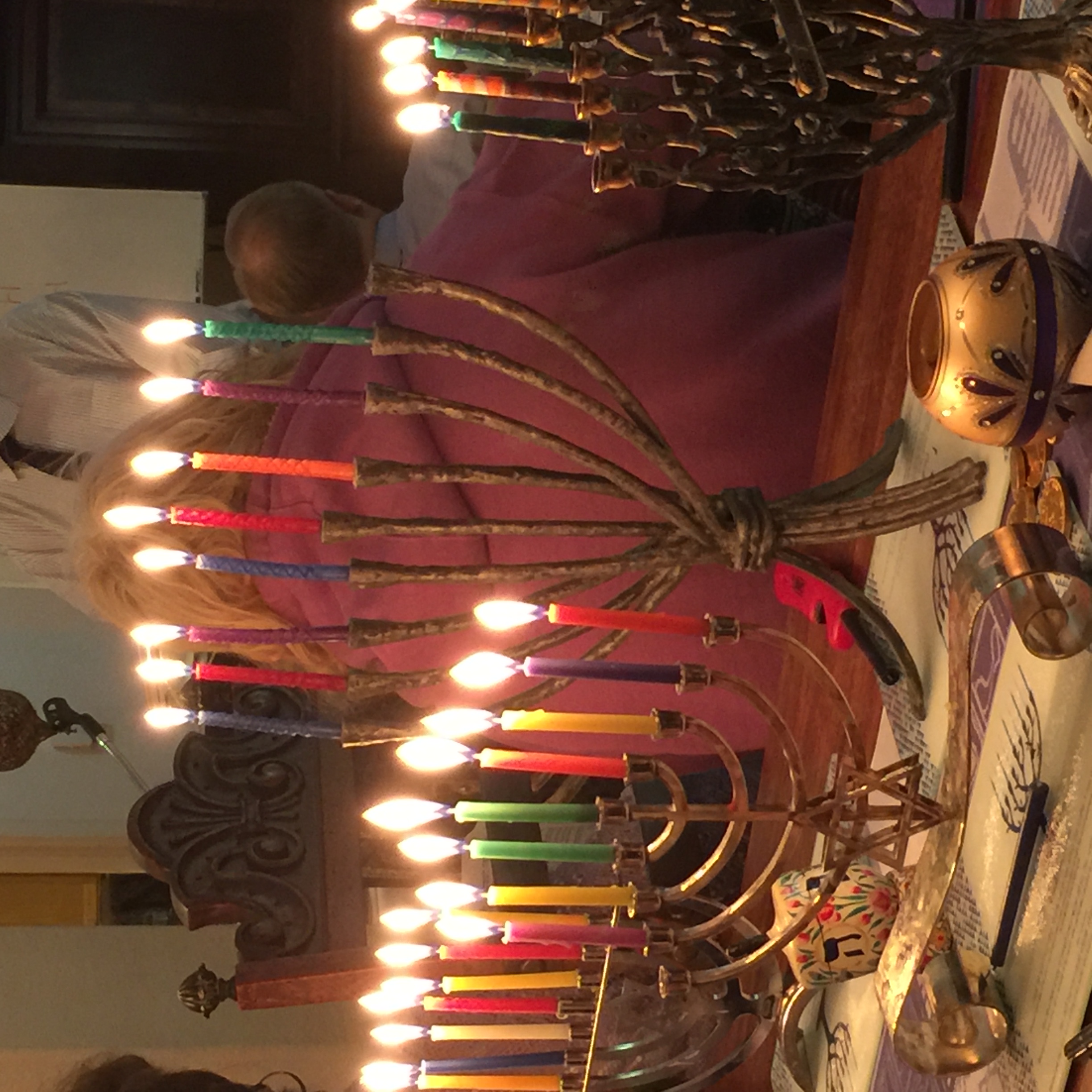Hanukkah history, traditions, & applications to Believers, part 1
During the reign of Alexander the Great (336-323 BC), Syria, Egypt, and Palestine experienced much freedom and were allowed to practice their own religions. Under Alexander the Great’s relative benevolent rule, many Jews adopted much of the Hellenistic culture, language, customs, and dress of the Greeks. However, a century later, under the rule of Antiochus IV Epiphanes, Jews were severely oppressed. In 168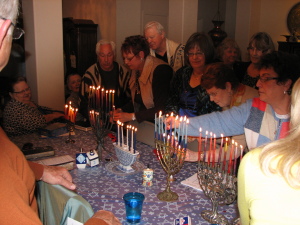 BC, the Temple was desecrated. There was not only worship of Zeus in the Temple, but a statue of Zeus was erected and pigs were sacrificed on the Altar. Jews were ordered to bow down to Greek gods.
BC, the Temple was desecrated. There was not only worship of Zeus in the Temple, but a statue of Zeus was erected and pigs were sacrificed on the Altar. Jews were ordered to bow down to Greek gods.
A remnant of Jews resisted and refused to worship false gods, and a rebellion broke out against Antiochus and the Seleucid/Greek monarchy. Mattathias and his five sons led the resistance. Following Mattathias’ death, his son Judah took over. They called themselves the Maccabees (an acrostic of the Hebrew Mi Kamocha B’Elim Adonai (Who among the mighty [other gods] is like You, Lord?) Thru guerilla-type warfare tactics, the Maccabees were successful and regained control of the Temple. Judah then called for the Temple to be cleansed, rebuild the Altar, and light its menorah, which was to be kept burning every night. According to tradition, the Jews discovered there was only one vial of undefiled oil. Nevertheless, the menorah was lit … and it continued burning for eight days, until more oil could be made.
Though this event occurred after the close of the Tenach (Old Testament), it is referred to in the Brit Hadashah (New Testament) when Yeshua (Jesus) was in Jerusalem during the Feast of Dedication (“It was now winter, and Jesus was in Jerusalem at the time of Hanukkah, the Festival of Dedication,” John 10:22, NLT).
As Rabbi Shimon Apisdorf stated, the Jewish people are a “tiny and ill equipped people [who] was prepared to take on the superpower of its day.” [Are we, as believers, willing to follow God even when we are facing formidable enemies?]
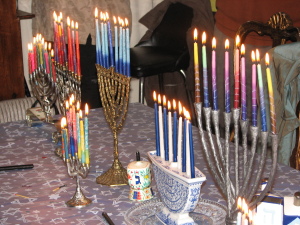 There are three things Hanukkah celebrates:
There are three things Hanukkah celebrates:
- The miracle of the Temple’s one vial of oil lasting for eight days, not one.
- The Rededication of the Second Temple. (Another name for Hanukkah is the Feast of Dedication.)
- The victory over assimilation. The Jews’ resistance to becoming completely Greek in action, thought, language, and culture. (It is interesting to note that Jews do not glorify military victory, only the resulting events. For example, the reclaiming of the Temple in 164 BC and the Western Wall in 1967.)
To a believer, perhaps the most significant is God’s intervention:
- HE enabled the weaker and less significant (the Jews) to overcome the most powerful (the Seleucid/Greek army).
- HE enabled the one day of oil to last for eight.
- HE enables us to have victory over assimilation into the world around us; victory over the trials of our personal lives. Jesus said, “I am the light of the world. Whoever follows me will never walk in darkness, but will have the light of life,” John 8:12b, NIV.)
- Daily, He wants us to rededicate our lives (our earthly temples) to Him.
Prayer:
“L-RD, we bless You!!! Help us to reflect You in all our actions! Be with our soldiers – protect and guide them. Be with their families – help them to be strong and to keep their families together and strong. Be with Israel, Your love, and the love of so many of us. Give believers favor! Divinely orchestrate their footsteps. Bring YOUR peace to Your holy City. Turn the hearts of the evil ones to You. Make a way where there appears to be none. Protect the innocent from the terror assaults. In the Name of our soon-coming Messiah, Yeshua, we ask these things.”
1415

